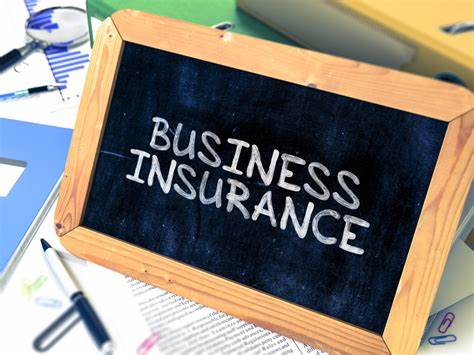Every time a business opens its doors, it confronts a variety of dangers, including fire, theft, damage, and loss, as well as being sued for injuries by a member of the public. As a result, having some sort of company insurance to safeguard both your assets and yourself is critical – but there are several options.
To ensure that your business is properly protected, you can get in touch with the Insurance brokers Adelaide to understand what’s required, the costs, and other details.
Is insurance compulsory for businesses?
Workers’ compensation insurance is a type of insurance that protects employees from This is essential if you have employees to safeguard them in the event of an accident or illness.
Personal injury insurance for third parties is the other one. If you own and use motor vehicles as part of your business, you must obtain obligatory third party (CTP) insurance to protect yourself from personal injury claims arising from their use.
Liability insurance is for the general public. In some areas, this is also required for certain types of enterprises and self-employed people, such as plumbers and electricians, and it protects you from third-party death or injury.
What are different types of business insurance to find in Australia?
When you get in touch with the professional business insurance brokers Adelaide, they will help you understand the various insurance types for business and which one should be applicable for your trade –
Liability
Liability insurance protects you from the myriad legal dangers that come with owning a business. Liability coverage is available through the following types of insurance, depending on the type of business you run:
Professional indemnity – This insurance covers businesses that provide specialised services or professional advice from lawsuits and financial losses that may arise as a result of a client following your advice or using your service. For example, if you’re a builder and it’s discovered that your work has serious structural flaws, you could be sued. A professional indemnity insurance policy would assist in defraying legal expenses.
Public liability – If someone sues you for an injury or damage to their property as a result of your business activity, public liability insurance can help cover the costs. This would, for example, cover you if a customer were to slip and fall on your property.
Product liability – This covers you in the event of a loss or damage claim arising from products your company sold or supplied. It’s frequently included in a public liability policy and protects you against legal expenses.
Management liability – This policy is designed for directors and managers, and it can protect you from allegations of mismanagement, discrimination, and other dangers that come with running a business.
Cyber liability insurance – If your company runs on technology, cyber insurance can protect you from claims made against you as a result of cyber assaults. It can cover you for things like broken hardware, legal fees, and a tarnished reputation, among other things.
Assets and income
Another crucial aspect of having a business is being able to safeguard everything you possess as well as the money you earn. The following are some of the policies available:
- Building and contents
- Thefts
- Money
- Commercial vehicle
- Stock deterioration
- Employee fraud
- Equipment/ machinery breakdown
Business interruption
It’s also feasible to receive coverage for business interruptions that could affect or prevent you from making money. The following sorts of company insurance protections can frequently be added to a policy:
Business interruption – If a natural calamity, such as a storm, disrupts your business operations, business interruption insurance can help you recover your losses and minimise your financial damages.Tax audit – This will help you cover the expenses of any ATO-prompted investigation or audit into your tax liability. You can also hire an accountant or tax agent with this.

